
Jurnal Kejuruteraan
metrics 2024
Fostering Interdisciplinary Dialogue in Engineering.
Introduction
Jurnal Kejuruteraan, published by UKM PRESS, serves as a pivotal platform for disseminating high-quality research in the field of engineering. With an ISSN of 0128-0198 and E-ISSN of 2289-7526, this esteemed journal has embraced *Open Access* since 1989, ensuring that valuable scholarly contributions are readily available to an expansive audience, including researchers, professionals, and students. Based in Bangi, Selangor, Malaysia, the journal reflects a commitment to advancing knowledge and innovation within the engineering discipline, inclusive of subfields like civil, mechanical, and electrical engineering. Although specific bibliometric indicators such as H-index and Scopus rankings are yet to be established, the journal is dedicated to maintaining rigorous peer-review standards, fostering interdisciplinary research, and engaging with contemporary challenges in engineering practices. As a resourceful outlet for emerging and established authors alike, Jurnal Kejuruteraan not only elevates engineering discourse but also contributes significantly to the scholarly community's advancement in Malaysia and beyond.
Metrics 2024
 -
- 0.60
0.60 0.70
0.70 -
-Metrics History
Rank 2024
IF (Web Of Science)
JCI (Web Of Science)
Quartile History
Similar Journals
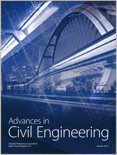
Advances in Civil Engineering
Innovating Infrastructure, Inspiring ChangeAdvances in Civil Engineering is a leading peer-reviewed journal published by HINDAWI LTD, dedicated to advancing knowledge and innovation in the field of civil and structural engineering. Holding an esteemed Q2 ranking in the 2023 category for Civil and Structural Engineering, this journal serves as a vital platform for disseminating cutting-edge research and practical applications that address contemporary challenges in infrastructure development, sustainable design, and material science. Launched in 2008 and operating as an Open Access journal since 2009, it promotes the free exchange of ideas by ensuring that all articles are accessible to researchers, professionals, and students globally. The journal is also indexed in Scopus, ranking at #142 out of 379 in its category, situating it within the 62nd percentile of its peers. With a focus on interdisciplinary collaboration and innovative solutions, Advances in Civil Engineering contributes significantly to the ongoing evolution of engineering practices and education, making it an essential resource for anyone involved in or studying the ever-evolving field of civil engineering.
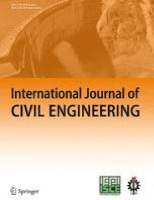
International Journal of Civil Engineering
Connecting Theory to Practice in Civil Engineering ResearchThe International Journal of Civil Engineering, published by Springer International Publishing AG, is a premier platform dedicated to advancing the field of civil engineering. With a notable impact factor and a strong reputation reflected in its Q2 quartile rankings in both Civil and Structural Engineering as well as Geotechnical Engineering and Engineering Geology, this journal facilitates the dissemination of high-quality research from 2009 through 2024. Researchers and professionals can access cutting-edge studies and innovative practices that address contemporary challenges in civil engineering, such as sustainable infrastructure development, environmental impacts, and advanced material technologies. Situated in Switzerland, the International Journal of Civil Engineering emphasizes the critical interplay between theory and application, making it an essential resource for students, academics, and industry leaders seeking to stay at the forefront of their disciplines.
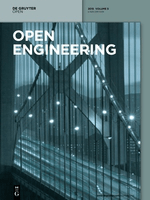
Open Engineering
Unlocking Engineering Excellence Through Open AccessOpen Engineering, published by DE GRUYTER POLAND SP Z O O, is a pioneering open access journal that has been dedicated to advancing the fields of engineering since its establishment in 2015. With its ISSN 2391-5439 and a commitment to disseminating high-quality research, the journal provides a platform for scholars around the globe to share their innovative findings across multiple engineering disciplines, including Aerospace, Civil and Structural, Electrical and Electronic, Environmental, and Mechanical Engineering. Open Engineering is indexed in Scopus and has achieved respectable rankings, such as 47th in Aerospace Engineering (69th percentile) and 254th in Mechanical Engineering (62nd percentile), showcasing its sustained academic impact. The journal operates under an Open Access model, ensuring that its content is freely available to all, which fosters a collaborative scientific environment and broadens the reach of research outputs. Its objectives include promoting interdisciplinary dialogue and encouraging cutting-edge research that addresses complex engineering challenges. Researchers, professionals, and students looking to contribute to or engage with timely advancements in engineering are invited to explore the breadth of topics covered in this essential publication.
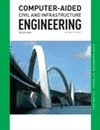
COMPUTER-AIDED CIVIL AND INFRASTRUCTURE ENGINEERING
Pioneering New Frontiers in Civil and Structural EngineeringCOMPUTER-AIDED CIVIL AND INFRASTRUCTURE ENGINEERING, published by WILEY, stands as a leading journal in the domains of civil and structural engineering, computational theory, and computer-aided design since its inception in 1986. With an impressive ISSN of 1093-9687 and E-ISSN of 1467-8667, this esteemed UK-based journal holds a prestigious position in the academic community, reflected by its Q1 ranking in numerous relevant categories, including Civil and Structural Engineering and Computer Graphics as of 2023. The journal is renowned for promoting innovative research that utilizes computational techniques to solve complex engineering problems, making it an essential resource for researchers, professionals, and students alike. Despite its lack of open access options, the journal garners significant interest due to its rigorous peer-review process and high-impact articles, underlining its importance in the advancement of infrastructure engineering practices and technologies. With a Scopus ranking placing it among the top journals in various engineering and computer science fields, COMPUTER-AIDED CIVIL AND INFRASTRUCTURE ENGINEERING continues to foster knowledge and collaboration, ultimately contributing to the future of smart and resilient infrastructure development.

Electrical Engineering & Electromechanics
Fueling the Future of Electrical and Mechanical DisciplinesElectrical Engineering & Electromechanics, published by the Natl Technical University, Kharkiv Polytechnic Institute, is a leading open access journal that has been disseminating cutting-edge research in the fields of electrical and electronic engineering, energy engineering, and mechanical engineering since its inception in 2006. With ISSN 2074-272X, this journal not only contributes to the advancement of engineering science but also provides a platform for knowledge sharing among researchers, professionals, and students globally. The journal holds a notable position within the academic community, being classified as Q3 in 2023 across multiple categories, highlighting its relevance and influence in the engineering discipline. With Scopus rankings revealing its percentile standing, the journal is positioned to foster innovation and discussion in a rapidly evolving field. The open access model ensures that all published articles are freely available, enhancing the visibility and impact of high-quality research. As it converges towards the years of 2019 to 2024, Electrical Engineering & Electromechanics aims to continually publish groundbreaking studies while encouraging contributions that drive technology and electrical advancements forward.

Engineering Technology & Applied Science Research
Connecting Researchers to Shape the Future of Applied ScienceEngineering Technology & Applied Science Research is a distinguished open-access journal published by EOS ASSOC based in Greece, focusing on the multifaceted realms of engineering, materials science, and signal processing. Established in 2011, this journal has rapidly gained recognition, achieving a Q2 ranking in Engineering (miscellaneous) and a Q3 ranking in both Materials Science and Signal Processing for 2023, showcasing its growing impact in these critical fields. With an emphasis on disseminating high-quality research and fostering innovation, ETASR provides a platform for researchers, professionals, and students to share their findings and explore emerging technologies. The journal's Scopus rankings further reinforce its significance, positioning it strongly within the top percentiles among its peers. With a commitment to open access, ETASR ensures that research is accessible to a global audience, promoting collaboration and knowledge sharing across disciplines. Whether you are a seasoned researcher or a budding student, ETASR is an invaluable resource for advancing your understanding and contributing to the cutting-edge developments in engineering and applied sciences.

Dyna
Connecting academia and industry for transformative engineering solutions.Dyna, with the ISSN 0012-7361 and E-ISSN 1989-1490, is a prominent academic journal published by the Federación Asociaciones Ingenieros Industriales España. Situated in Spain, it is dedicated to advancing knowledge and research in the field of engineering, specifically focusing on diverse aspects within the Engineering (Miscellaneous) category. With a current Scopus rank of #245 out of 307, Dyna operates in the 20th percentile, emphasizing the journal’s commitment to fostering innovation and dialogue among scholars and industry practitioners alike. Although it operates under traditional access models, the journal is pivotal for researchers, professionals, and students seeking to contribute to the evolving landscape of engineering disciplines. Covering a broad range of topics from 2009 to 2024, Dyna aims to facilitate interdisciplinary collaboration and disseminate cutting-edge findings that can influence both academia and industry.
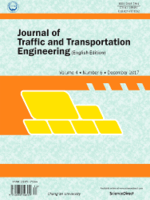
Journal of Traffic and Transportation Engineering-English Edition
Connecting Research and Practice in Traffic Engineering.Journal of Traffic and Transportation Engineering-English Edition, published by KEAI PUBLISHING LTD, is a leading open-access journal that has been disseminating valuable research in the realms of civil and structural engineering, as well as transportation studies since 2014. With a robust impact factor reflected by its prestigious Q1 rankings in both Civil and Structural Engineering and Transportation, this journal stands at the forefront of innovation and scholarship, featuring contributions from experts across the globe. The journal is particularly noted for its practical and theoretical advancements in traffic and transportation engineering, making it indispensable for researchers, industry professionals, and students aiming to deepen their understanding of these critical fields. Dedicated to providing a platform for high-quality interdisciplinary research, the Journal of Traffic and Transportation Engineering embraces the principles of open access, ensuring that all published articles are freely available to foster knowledge sharing and collaboration within the community. With its headquarters located in Beijing, China, the journal continues to push boundaries and set new standards in the field of traffic and transportation research.

Journal of Engineering Research
Elevating Engineering Insights for Tomorrow's ChallengesJournal of Engineering Research, published by ACADEMIC PUBLICATION COUNCIL, is a pivotal open-access platform dedicated to the dissemination of innovative research in the field of engineering. Established in 2013, this journal has continuously provided researchers, professionals, and students with the opportunity to share their groundbreaking findings without the barriers of subscription fees since transitioning to open access in 2014. With an ISSN of 2307-1877 and an E-ISSN of 2307-1885, the journal is indexed in prominent databases, securing its relevance with a ranking in the Q3 quartile for general engineering as of 2023. Located in Kuwait, the Journal of Engineering Research aims to foster interdisciplinary collaboration and promote advancements across various engineering disciplines. The journal’s commitment to quality research is reflected in its ongoing efforts to elevate its Scopus ranking and impact factor, aiming to enhance visibility and accessibility in a globally competitive academic landscape. Researchers looking to publish cutting-edge engineering studies will find a welcoming community eager to advance knowledge and foster innovation.

International Journal of Engineering Research in Africa
Elevating African Engineering Research GloballyThe International Journal of Engineering Research in Africa is a pivotal academic resource for researchers, professionals, and students interested in the multifaceted field of engineering within the African context. Published by TRANS TECH PUBLICATIONS LTD, this journal facilitates the dissemination of innovative research, covering a myriad of topics in engineering, from advanced materials to sustainable practices. With an ISSN of 1663-3571 and E-ISSN 1663-4144, this publication not only fosters scholarly communication but also contributes to the global engineering discourse, as evidenced by its current Q3 ranking in the Engineering (miscellaneous) category in 2023. Operating from its base in Switzerland, the journal has been actively publishing since 2010 and continues to play a vital role in the advancement of engineering knowledge, particularly in the African landscape. Although it does not offer an open access model, the journal's commitment to quality research ensures that it remains a valuable asset for those seeking to understand and innovate within the engineering sector. Its integration in Scopus with a rank of #175 out of 307 in General Engineering further underscores its relevance and impact in the engineering community.